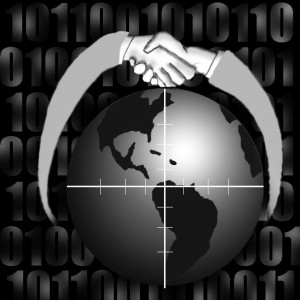Some time early in my middle school career, a friend of mine, a Greek immigrant, introduced me to what was essentially a Korean knock-off of World of Warcraft. The game, called Mu, came complete with every reason there was to get hooked, at about half the production value, with no subscription fee or price. English speakers were a minority in this online world, so when we crossed paths with Americans, we stuck together and played as a group.
Although they couldn’t understand us exactly, it didn’t take long for players around us to realize what our group had in common and they didn’t like it. We were followed and harassed, racial slurs were thrown at us and we fired back. Eventually, amidst a cloud of venomous patriotism, I was contacted individually by a Serbian boy.

He described his house to me, where American military patrolled across the street, and what his grandmother was carrying up the stairs when a stray bullet struck her in the head and killed her. I was no more than thirteen years old and riveted by his story. He wanted to know how I could defend a country that was responsible for such a heartbreaking killing. I wanted to know how he could blame me for it. I apologized anyway and he accepted. We talked as friends for a while.
Years later I would have a similar experience in eastern Germany while on exchange. Although it happened face to face this time, the experience of dismantling animosity and discovering common humanity by direct communication was just as authentic in person as it was online. Maybe even more so, considering how much beer was flowing while animosity was being dismantled during my exchange.
Recently, mass media has recognized the Internet as a forum for peaceful, even loving talks between alien populations as the result of an Israeli couple’s hard work. Graphic artist Ronny Edry and his wife, Michal Tamir, earned public attention by launching a Facebook page and blog with the tagline “Iranians, we <3 you.”
Contrary to the founders’ expectations, the pages attracted an influx of feedback within hours. Iranians were reaching out and reciprocating with affection and peaceful intent, some concealing their identities for fear of having their expressions of good intent discovered by their government.
In the volatile atmosphere between Iran and Israel, one that is constantly verging on open war, communication like this is both rare and absolutely priceless. As we Americans know all too well, a population can be submitted to devastating, senseless warfare by being isolated and misinformed. So many past wars have been sparked by burning mutual cultural hatred and fueled by blinding propaganda.
If this new kind of interaction, made possible by the modern Internet, is the beginning of the end of tight national, psychological control, then it may very well be pointing toward an end to wars that benefit only a powerful minority. At the very least, it indicates a possible end to willing popular support for violence.
All of this wishful thinking is miles away without dedicated action, like that of Edry and Tamir, but what’s most important is that it is possible at all. As Americans, we have a lot of reaching out to do, but no matter the outcome every attempt is a success, albeit a small one. We all hold technology that might some day usher in an era of lasting world peace, so rather than shopping online with it, check out that blog. A mutual loving response to imminent violence is the closest thing I’ve seen to truly transcendent cultural evolution in my lifetime. It’s really something you should see.